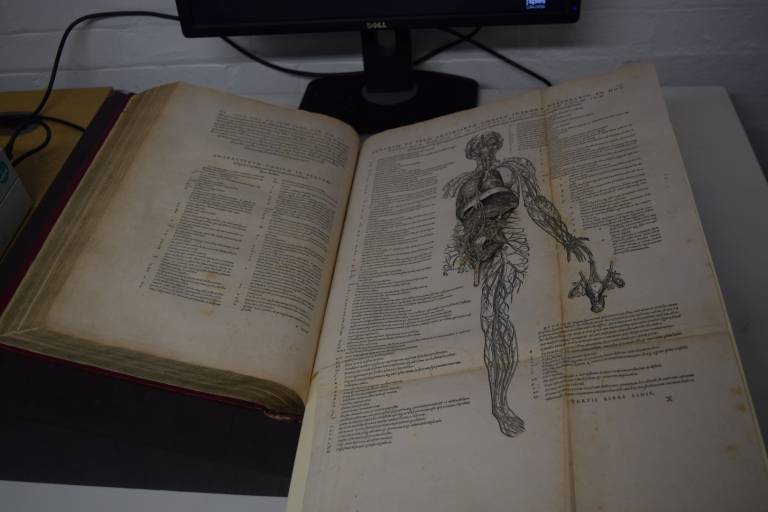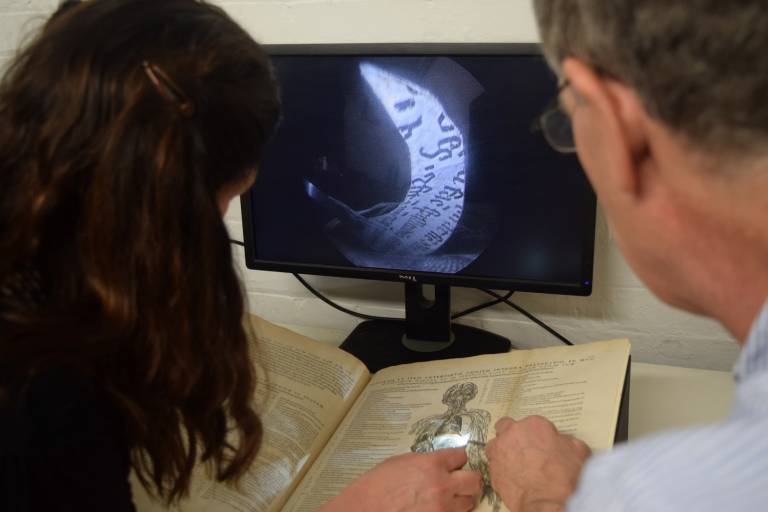By Adam Gibson
Andreas Vesalius was a 16th century anatomist who wrote an influential anatomical textbook called De humani corporis fabrica (On the fabric of the human body). Numerous copies exist, but it is still remarkable for its extraordinary illustrations. Moreover, he provided some pages that were intended to be cut up and assembled into pop-up illustrations (Figure 1).

Figure 1: De humani corporis fabrica, showing the pop-ups.
We were asked to examine the pop-ups to see whether we could get evidence for how or when they were made. We liaised with Dr Sandy Mosse and Dr Dzoshkun Shakir of the Wellcome / EPSRC Centre for Interventional and Surgical Sciences who brought a foetal laparoscope that was used for education and outreach. This is a rigid endoscope with a diameter of about 3 mm which we could use to look underneath the pop-up flaps (Figure 2).

Figure 2: Imaging under the flaps with a foetal laparoscope
Movies were taken with the laparoscope, that appear to show that the pop-ups were supported with parchment rather than paper, and that writing on the parchment was in Latin in a Gothic script. That suggests that the pop-ups were assembled when such manuscripts were commonplace soon after the book had been purchased.
 Close
Close

